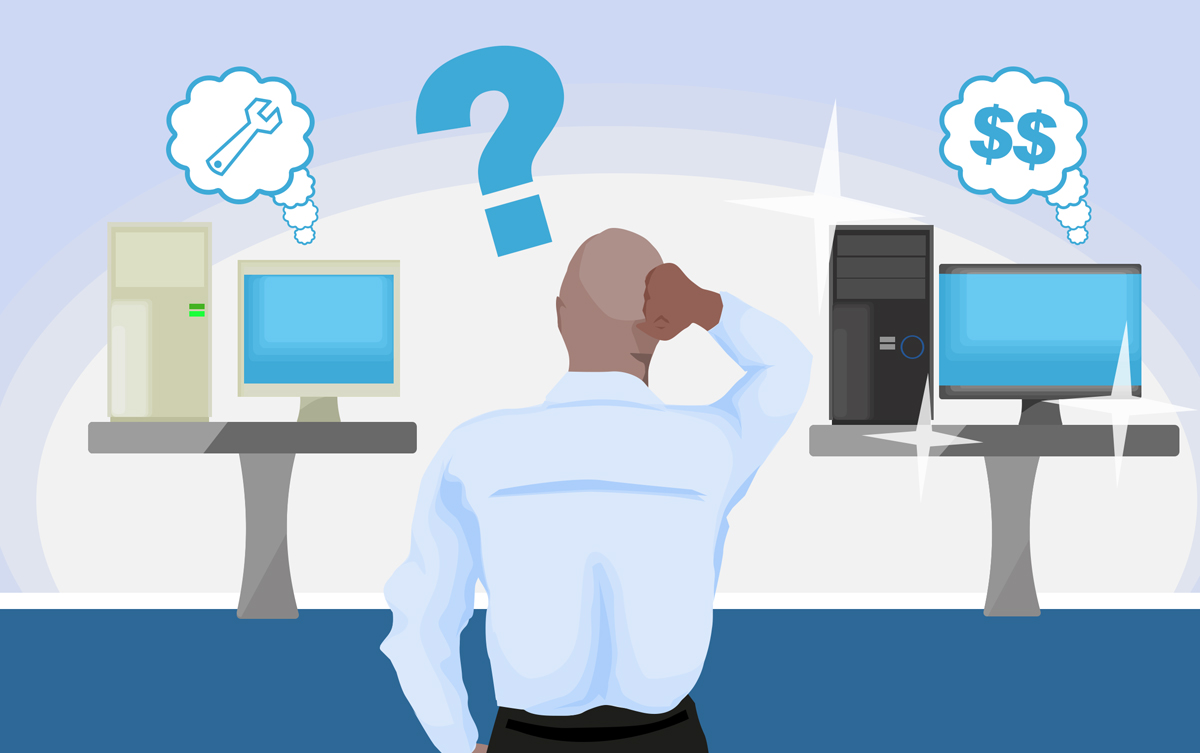Tips for buying Business Computers
Purchasing business computers for work can be a daunting task. There are so many brands and so many different types. Which one is the best for you? How much should you spend? Do you need a laptop, desktop, or all-in-one(AIO)? How does a business decide what to get? There is no magic formula to follow to make certain you get the perfect computer, but there are a few things to keep in mind that will help you make your decision. Here are 5 tips when buying small-business computers.
Avoid the temptation of going cheap.
 Time is money. Spending a little bit more up front can save you a lot of money in the long term. Yes, that bargain computer you found for €350 was a great buy but really, it’s a false economy. Its lack of speed will cost you far more than that. If your budget allows, you should spend at least €600 and closer to €800 on a decent business grade computer. Cheaper computers are not only generally slower but are built with lower quality hardware which very often shortens their usable lifespan. Remember cheaper doesn’t mean better value especially when it comes to IT Hardware.
Time is money. Spending a little bit more up front can save you a lot of money in the long term. Yes, that bargain computer you found for €350 was a great buy but really, it’s a false economy. Its lack of speed will cost you far more than that. If your budget allows, you should spend at least €600 and closer to €800 on a decent business grade computer. Cheaper computers are not only generally slower but are built with lower quality hardware which very often shortens their usable lifespan. Remember cheaper doesn’t mean better value especially when it comes to IT Hardware.
Decide Whether You Need Portability.
Will your work require you to work out of the office? Then get a laptop. If you are likely to never leave your office, get a desktop. Desktops are generally cheaper for similar hardware (this is a rule of thumb and is not written in stone). Desktops are hardier, more easily repaired, and easily upgraded. If you need to work at home, on the road, at client meetings, etc., then get a laptop.
SSD drives are no longer the future they are the present.
Solid State Drives (SDD’s) gives your computer the ability to boot almost immediately while giving you a massive boost in performance when opening programs. SSD’s use flash memory to deliver dramatic performance gains compared to older mechanical hard drives(HDD’s) that are found in cheaper computers. Since SSD’s don’t have small moving parts like HDD’s they are also less prone to failure. Do yourself a massive favour and insist on an SSD Drive over a HDD Drive, you will thank me later!
Get the highest Processor Possible.
The processor is the heart of your computer. If it’s slow, your machine will be slow. It is also the most difficult piece to upgrade. You can always add more RAM (memory) at relatively little cost at a later stage but the processor will remain the same for the lifetime of the computer. We would recommend at a minimum getting an i5 processor.
Remember That You—or Your Employees—Will Be Using This Tool Every day, All Day Long.
As it will be used on almost a daily basis for up to 4 years your purchase is an investment and not an expense. Faster computers mean more productivity from you or your employees. The cost of slow and troublesome computers will easily be higher than the initial cost of the computer and you could easily see a return on your investment after only a few months. If you need perspective, open your calculator and multiply the daily time you spend on your computer by 1000 (the number of working days in 4 years). The result should remind you why purchasing the right computer is so worthwhile.
Looking for new Business Computers or Laptops? Give us a call at 091-778770
